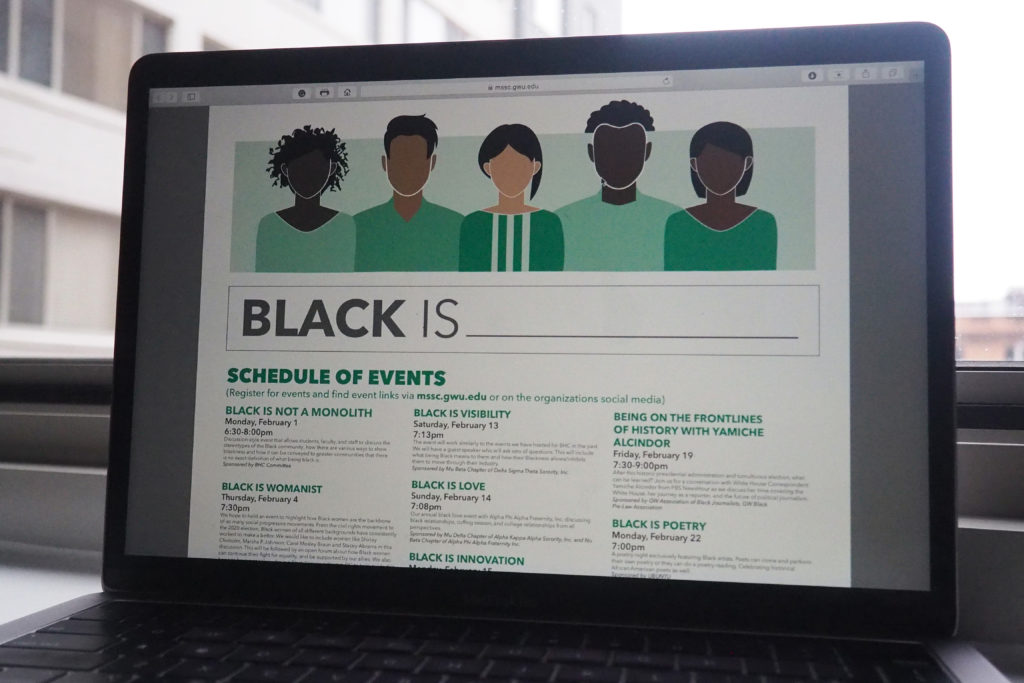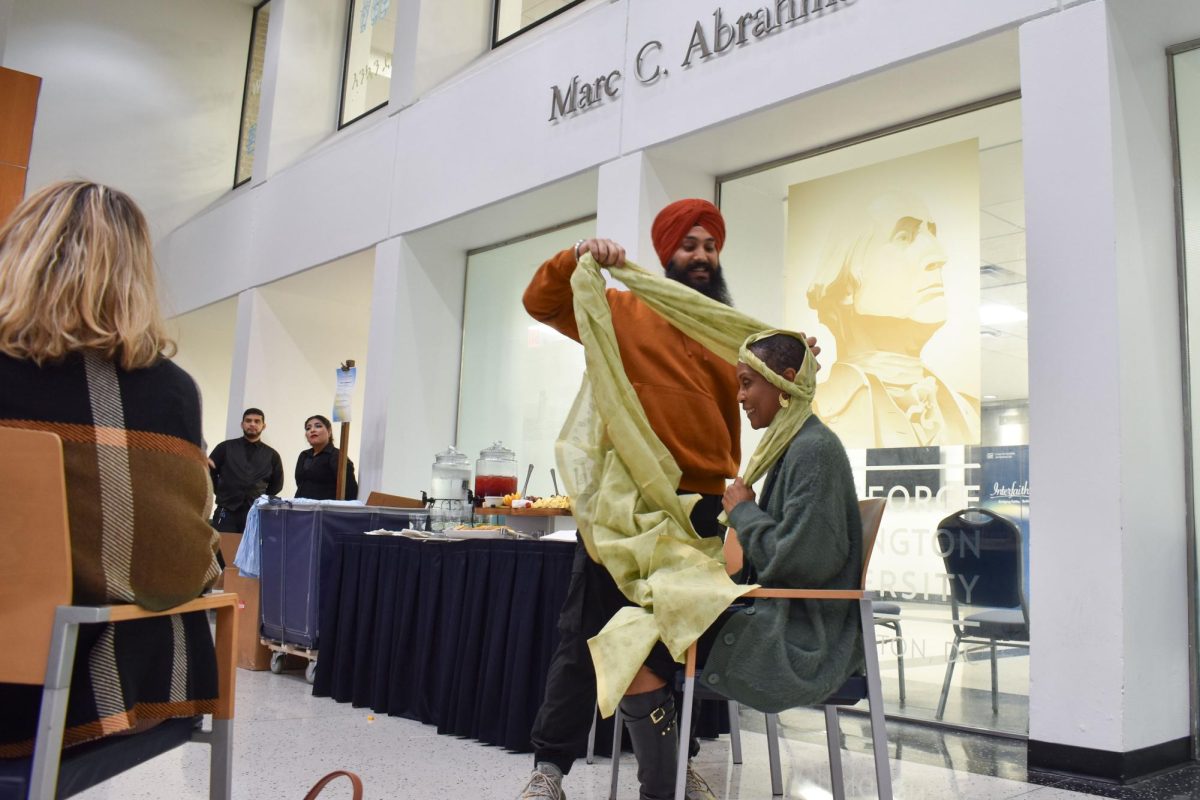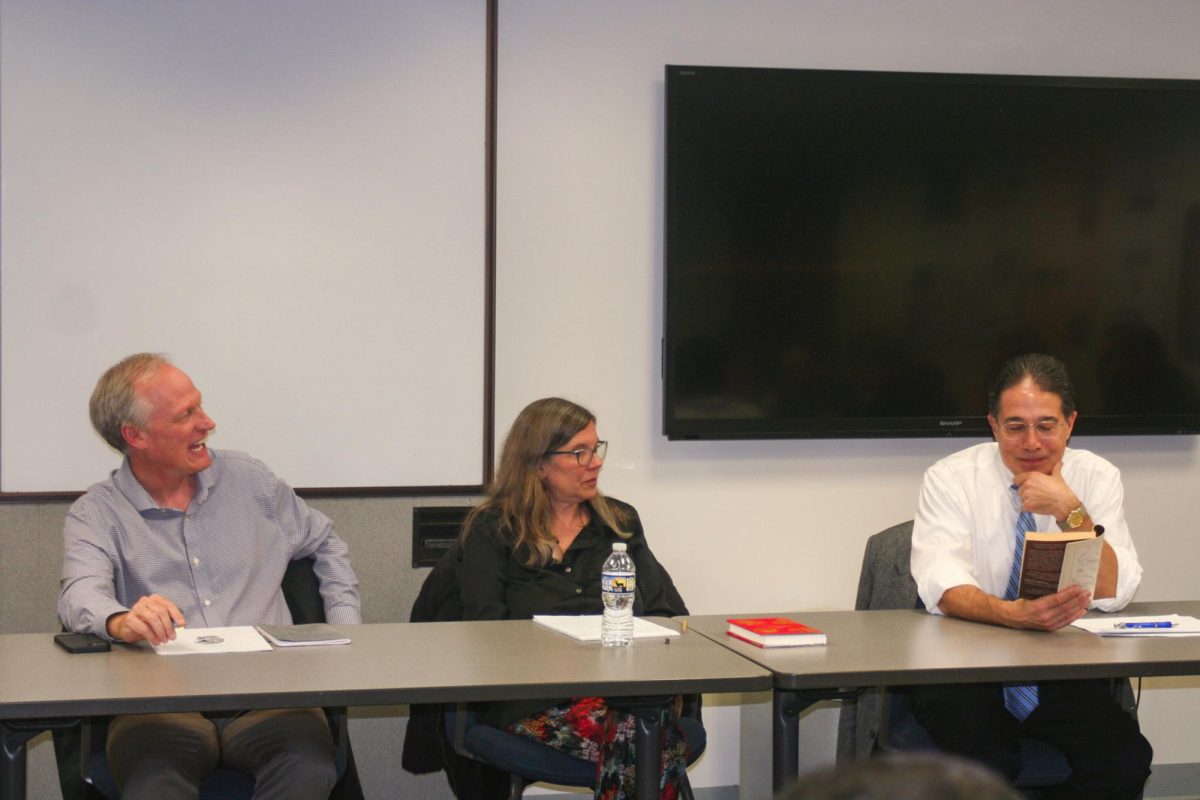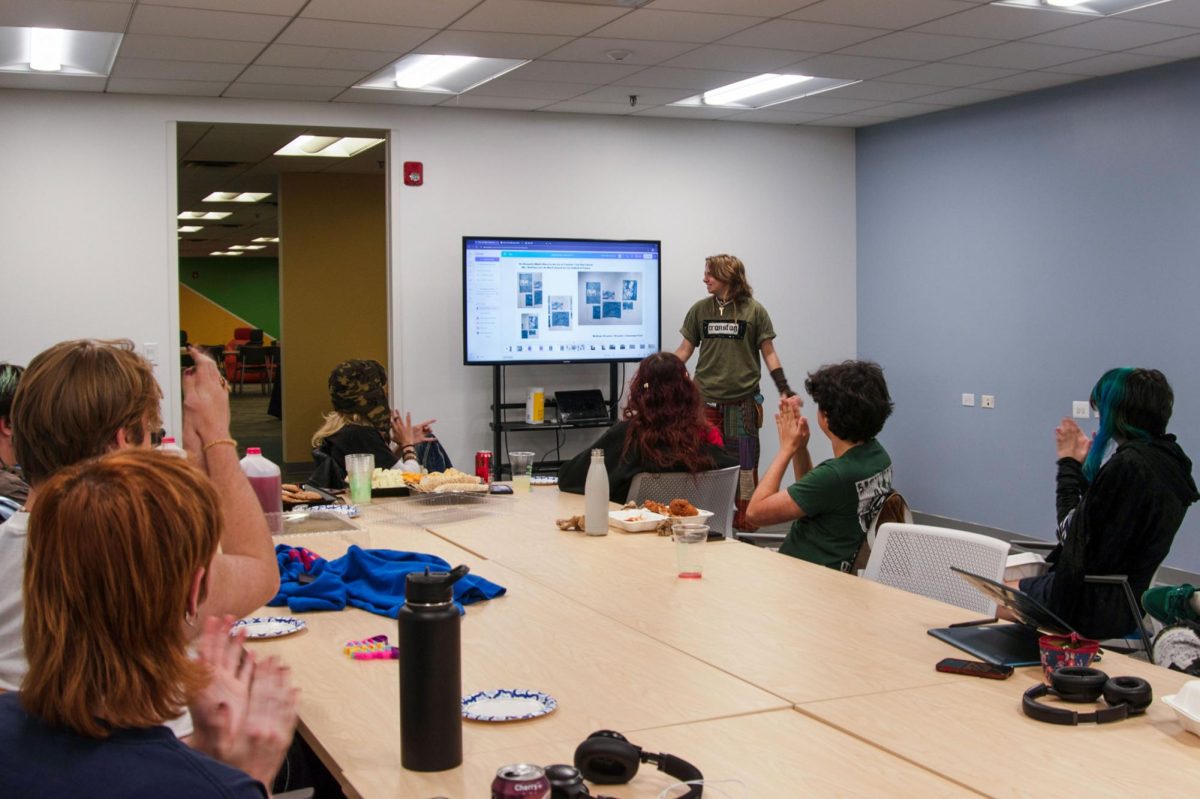For sophomore Talyn Williams, the Black Girl Mentorship Program’s outreach coordinator, this year’s Black History Celebration is an opportunity to uplift Black women through conversations about “womanism.”
In preparation for the BHC, which begins Monday, Black Girl Mentorship Program organized the panel event, “Black is Womanist,” for Thursday. The event will host representatives from groups like the Student Association, Feminist Student Union and Black Men’s Initiative to discuss the everyday experiences of Black women.
“We definitely wanted to do this because it is representative of the people that we cater to, which is Black women on the GW campus,” Williams said.
Williams is one of dozens of student leaders who are using the theme of the BHC, “Black is ___,” to celebrate their identities. Student leaders who helped put together this month’s celebration said they aim to emphasize the range of identities Black students on campus represent with events like “Black is Innovation” by the Multicultural Business Association and “Black is Power” by GW DREAMS.
Williams added that the discussion gives students an opportunity to learn about different student organizations to potentially join if they feel connected to any of the panelists’ experiences or message.
“It’s very important that we have organizations that cater to specific groups, but it would be definitely very beneficial for everyone if we could all just gather around,” Williams said.
In total, about 20 student organizations will participate in this year’s BHC with events ranging from STEM-focused symposiums to a virtual painting night.
Senior William Davis, the president of the Sports Business Association, said the organization’s panel event, “Black is More than a Player,” on Feb. 10 in collaboration with the Black Student-Athlete Alliance will invite four professionals in the sports industry to discuss their experiences as a minority in the field. He said he hopes inviting professionals in roles like sports management and agencies will show attendees that those interested in pursuing a career in the industry can enter roles beyond being a broadcaster or an athlete, which he said is a common stereotype.
“I hope to accomplish for my org, it being a non-Black org, I hope they have a better understanding of the different roles that different minorities portray within the sports industry,” Davis said. “It would be a good event for them to know about the different roles, not only the different roles within the sports industry, but how impactful they are to Black people and minorities in general.”
Sophomore Maya White, the secretary of the Black Student-Athlete Alliance, said “in light of 2020 and how the year took a turn,” she saw a greater call for public figures to speak out about racial issues.
She said the event can foster a sense of community among Black student-athletes by offering an open platform to speak and hear about being a minority in the sports industry. White also said the event will give non-Black peers an opportunity to listen to Black students’ concerns.
“GW wanted to be a part of that, especially our Black students,” White said. “Because I think contrary to popular belief, we are actually a minority within the athletic community so having a space where we’re able to talk about what’s going on and not feel uncomfortable or scared to speak out in front of our other peers.”
Tevon Blair, a second-year graduate student and the president of the Black Graduate Student Association, said he is helping put on an event for Feb. 25 called, “Black is the Future.” He said the event will involve a panel discussion with successful professionals, including GW alumni, in the technology, politics and education industries who are “breaking barriers” by entering White-dominated fields.
“I want to really push the importance of mentorship and Black people being more than just the positions that we are expected to do,” Blair said. “We can exist in spaces that were not made for us and do it well.”
He said members of BGSA chose young Black working professionals to speak at the event to emphasize the help they received from peers in their community through networking. He said he wants students to realize that together they can all continue to support each other through their professions.
“We want to make sure that our speakers are highlighting that they didn’t just get here in their roles by themselves,” Blair said. “They had a community. They had a network behind them that were supporting them throughout the journey.”
Senior Naseem Haamid, the president of the Undergraduate Black Law Student Association, said the organization is planning a virtual conference from Feb. 19 to 21, inspired by the 1972 National Black Political Convention, to advocate for better representation and access to equal rights in the Black community. He said the conference will host speakers and discussions about “grassroots organizing” and the steps that can be taken to hold President Joe Biden’s administration accountable on issues like health care.
“We are creating a space dedicated to a conversation around the Black political agenda during a time of unrivaled turmoil,” Haamid said. “The organizers of this event believe that although we are facing grave challenges, our country is on the precipice of change – on the cusp of a multi-racial democracy.”
The organization, in collaboration with the GW Association of Black Journalists, will also host a conversation with White House Correspondent Yamiche Alcindor about her journey being a reporter and the future of political journalism on Feb. 19, according to the BHC schedule.
Haamid said it brings him “joy” that the BHC is continuing this year in an online format, which he said is necessary during this “historical time.”
“Even in the virtual space, all of the Black organizations on campus have come together and collaborated and have worked toward making sure this happens,” Haamid said.








